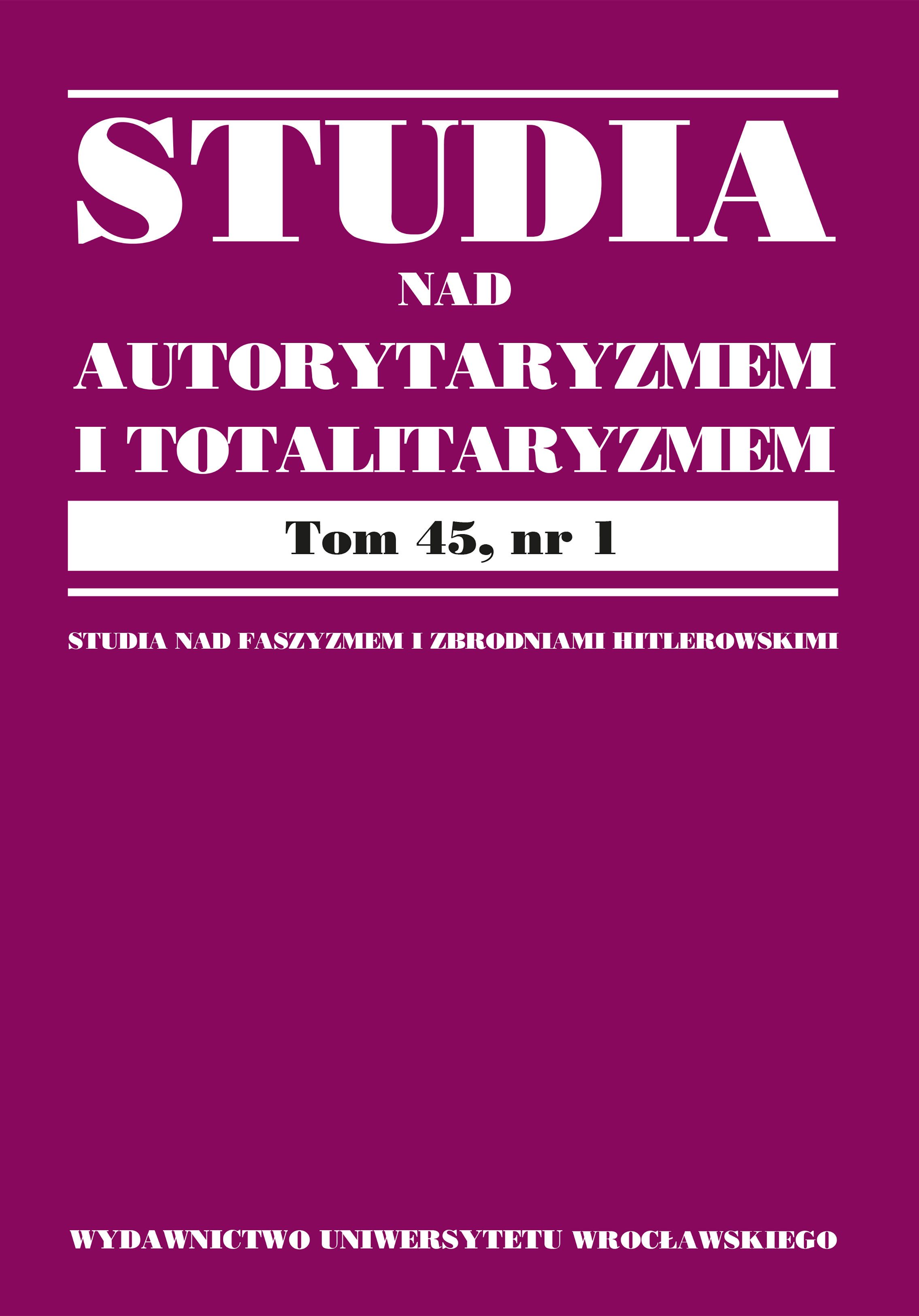

Articles

The article is devoted to the issue of consultants, an institution introduced in the Third Reich to represent Jews in legal matters. Some of the Jewish lawyers excluded from the German bar became consultants. The article presents the legal regulation, the reasons for its issuance and its effects. Based on the personal files of three consultants from the district of the Higher National Court in Katowice, the procedure of admitting them and the conditions of their activity were presented. On the basis of court files, the manner in which they conducted their work in criminal cases was analyzed and assessed.
A significant amount of anti-Jewish legislation was passed in Germany after Hitler seized power. Some of the newly introduced regulation also targetted lawyers of Jewish origin, whose professional activities were hindered, and eventually banned. In 1938 Jews were definitively removed from the German bar. At the same time, it was ensured that Jews would be provided with legal assistance and represented by consultants, i.e. lawyers of Jewish origin. There were clearly fewer consultants than Jewish lawyers (several in the districts in which individual higher national courts operated). Their admission was discretionary. According to sparse findings in the literature, consultants were treated adequately by the German courts and were not hindered in their access to court files, contact with clients or the possibility of submitting lawsuits. Three examined cases of consultants from the district of the Higher National Court in Katowice indicate that they enjoyed similar freedoms while performing their functions in the courts, as described in the literature. In their daily activities, however, they had to struggle with difficulties of an administrative or factual nature, which were a manifestation of discrimination and bans against Jews. Based on these three cases, it could be concluded that they were admitted to consular activity due to positive opinions among the population, the judiciary and the Gestapo, as well as their patriotic attitude during the First World War and during the Silesian Uprisings. Their exemplary professional conduct, war decorations, and even injuries sustained on the front of the Great War did not prevent the consultants from sharing the tragic fate of European Jews.